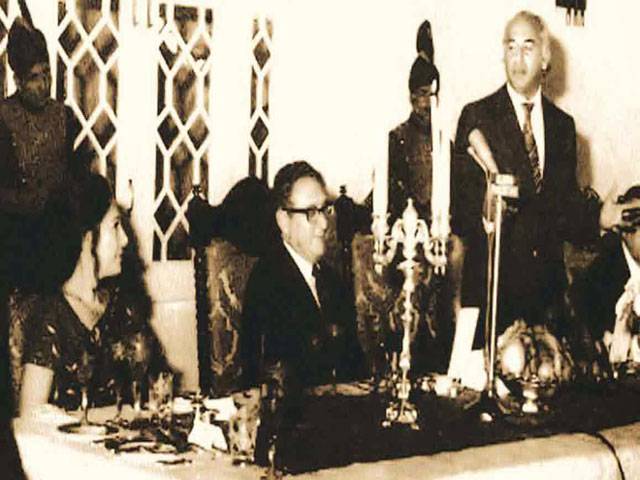“I was the protocol officer when Kissinger came to Pakistan and met Bhutto in Lahore. Kissinger came with a carrot and stick policy. The carrots were A-7 bombers, while the stick was not a direct threat, but since the US elections were near and the Democrats were set to win they wanted a tougher non-proliferation approach and might have made Pakistan an example. Pakistan did face sanctions.”
–Deputy Chief of the US mission in Islamabad, 2010.
Gerald Feuerstein, deputy chief of US mission in Islamabad, admitted that Bhutto had rejected Kissinger’s warning to disband Pakistan’s nuclear programme. Pakistan had to take a headstrong stand to have its nukes. Feuerstein was a witness to the Bhutto-Kissinger meeting in August 1976. US had been concerned over Bhutto’s nuclear plan to match India’s capabilities and sent Kissinger to warn the Pakistani leader. Throughout the 80s under President Zia ul Haq too, it was the program was a secret and there are many recorded statements by Zia ul Haq reiterating the fact that Pakistan was not working on nukes. All nuclear developments have to be done in secret due to international pressures. Iran especially has had to go though the worst of these pressures. It would be ideal that no country had these weapons, but in a world where this is not possible, what right does nay country have in telling another not to develop arsenals?






